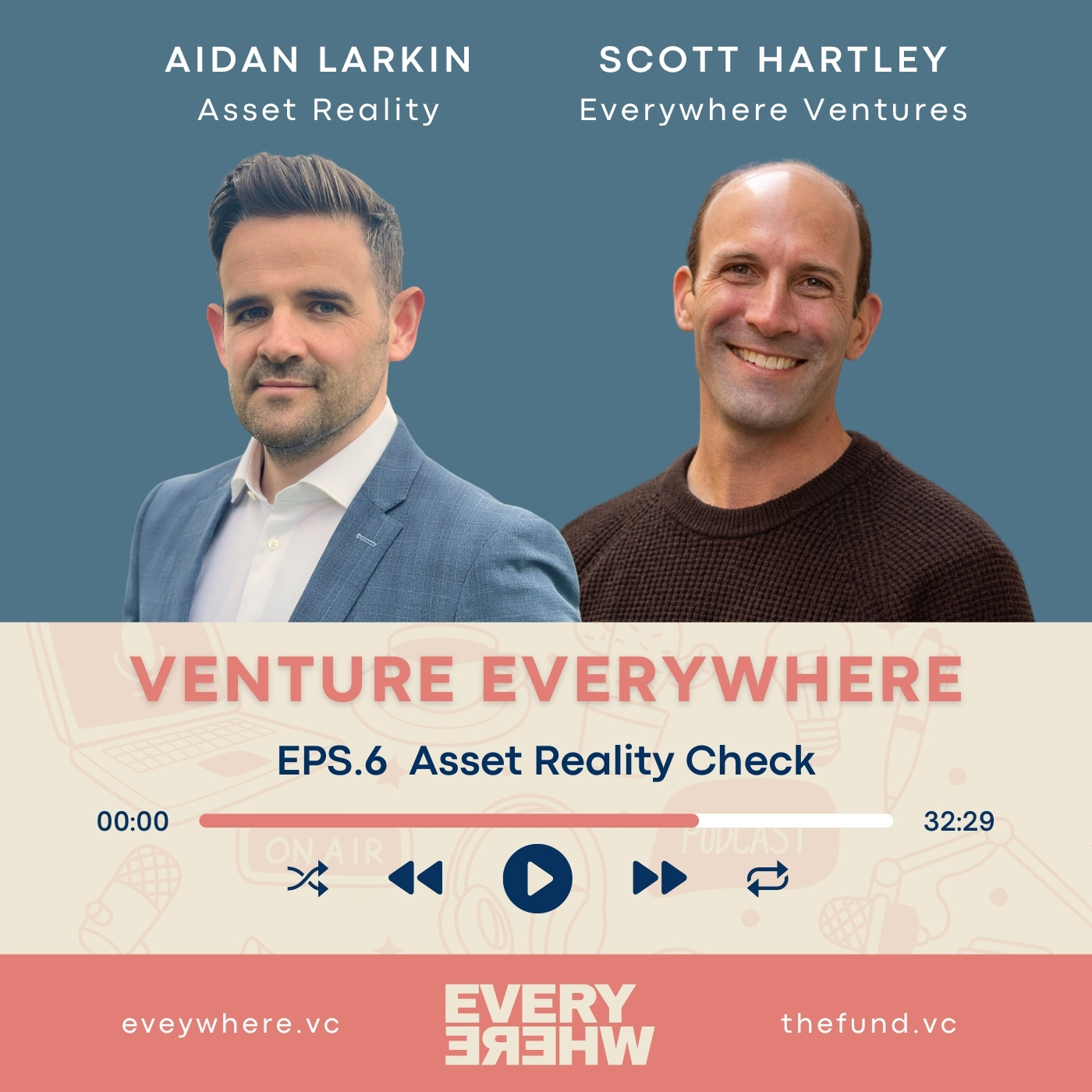Table Stakes Economy
Why Everywhere Ventures is focused on the future of money, health, and work
The Table Stakes Economy
The premise of Everywhere Ventures (formerly known as “The Fund”), has always been oriented around creating one of most engaged founder communities in the world. As a broad-based community we’ve welcomed founders from every background building across every sector. But as we raised our third fund and began to evaluate our performance and portfolio data over the last 5 years, we began to see clustering around three key themes, namely the future of money, health, and work. We see these as the three core pillars of our economy.
In a market with lower-risk ways to make returns, LPs investing in funds look to align their values with GPs, and this often means seeking GPs with particular areas of focus or sectors of expertise. LPs are betting on GPs they believe can generate outsized returns over a significant period of time. As venture capital is a relatively illiquid asset class, meaning money is tied up for a long time, the opportunity cost of investing in VC is very high, and LPs are discerning in who they invest in, and how tightly focused they are around a given “thesis,” or directional perspective on the world.
As GPs we are storytellers, talent scouts, and psychologists as well as investors, we refine a vision into a thesis, and relay that narrative to investors in order to raise capital. In turn we leverage that money to evaluate founder ideas, vision, charisma, and the grit to persevere.
When we looked at our existing portfolio of 250+ companies and noticed a clustering around the themes of money, health and work, we began to recognize simplicity in the noise. The world’s complexity can be boiled down to three foundational pillars that society needs to flourish - what we call “table stakes.” Today, we are primarily focused on this story. We define our thesis as the “table stakes economy,” namely money, health and work, the basics that people need to survive and thrive in our world.
Why we are focused on the future of money
Money has long been defined as a medium of exchange, a unit of account, and a store of value. As societies we’ve long used money, but technology has accelerated the velocity with which it can move, and the points to which it is exposed to risk. When we talk about the future of money, we look at all things related to the future of financial infrastructure, open banking that democratizes access to financial tools, improved payment rails and ledgers, facilitation of cross-border transactions making global interaction seamless, as well as how we evaluate, assess, and underwrite risk through new forms of insurance. We’re looking at the ways in which money can perform its timeless functions, but do so safely in an even-faster paced, global world.
Why we are focused on the future of health
Health is fundamental, and we believe technology can improve the quality of care by enabling medicine to happen closer to the patient through telemedicine and more aligned with needs through personalization that still protects privacy. We see ways in which better access to, and transferability of, data will improve care quality, making more customized solutions available faster and cheaper. We’re looking around the world at models that have existed or succeeded elsewhere, and where opportunities might exist to transfer knowledge to take advantage of new opportunities.
Why we are focused on the future of work
The world of work has transformed over the last decades, and accelerated post-COVID. When we talk about work, we focus on the reality that work has become hybrid, remote, and asynchronous. While the office will always exist in some way, many forms of collaboration, whether coding, managing, designing or building products, have moved to the cloud. In this transition there are new challenges in creation, efficiency, privacy and security. We’re interested in the platforms and tools that are accelerating these trends, as well as those defensive companies that focus on the underbelly of greater digital connectivity in the form of cybersecurity and risk mitigation. Across these ideas we’re looking at vertical SaaS, industrial automation, developer tools that might enable faster code production or iteration, as well as in AI and data infrastructure that looks at how public and private data might be merged to power new large language models (LLMs) or automated services.
The “Table Stakes Economy,” is the lens through which we evaluate ideas, asking 1) Does this fit into our thesis and areas of interest; 2) Is the timing or market opportunity appropriate to generate a venture scale return for our fund; and 3) Do we absolutely love the team and think these are the gritty, self-deterministic, never-take-no-for-an-answer founders who can run through walls to hire, fundraise, and sell their vision for the next five to ten years. We’ve been around long enough to know that rules are written in pencil and also meant to be proven wrong. So while this is how we make decisions generally, we’re also always open to the exceptional, the strange, and the irreverent founder who pushes back on our rules. If you’re building in one of our core areas, drop us a note. We’re a community of builders a-world-wide, and we’re excited to hear from anyone up to the challenge. 🚀
Jenny & Scott
Check out Episode 6 of the Venture Everywhere podcast, Asset Reality Check with Scott Hartley and Aidan Larkin. Listen on Apple, Spotify, and Stitcher and check out all our past episodes here.



